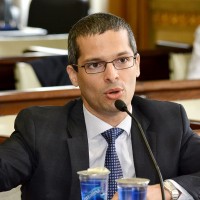After a tense legislative proceeding, the Brazilian State of Alagoas passed a statute forbidding professors at public universities from giving their political, religious or ideological opinions inside the classroom, under threat of being fined or fired. The statute was first approved by the Alagoas Legislation and the Governor tried to veto the statute claiming it was unconstitutional. The State’s Assembly overruled the Governor’s veto and pushed forward the implementation of the Act. The Act, ironically titled the “Free School Act,” is now in effect. In response, the Alagoas Teachers Union promised to challenge the Act in Court. Experts project that the case has the possibility to reach the Brazilian Supreme Court with the Education Secretary of State requesting that the Governor fast track the case.
The Free School Act is believed to be rooted in the fear that professors will discuss the political climate and other controversial themes (e.g. race, gender, and religion) that could exacerbate the atmosphere of intolerance nowadays observed in Brazil. The drafters of the Act claim that it was intended to keep politically charged speech, often used freely in social media, outside of the classroom. However, the State legislation is believed to have other motives and freedom of expression should be protected.
Academic freedom of expression is the foundation of a pluralistic and democratic society. The Act suppresses the marketplace of ideas that is essential to discuss, debate, and make conclusions in academia. While such infringement appears obvious and absurd, threats to academic freedom of expression are engrained in the history of Brazil. Students and academics were at the forefront of Brazil’s political and social revolutions. The government is fearful that what is being taught is the sharing of unpopular views about the current government. It is known that through controlling the content in classrooms, the government can assert their viewpoints; control the spread of potentially unfavorable information or ideologies; and limit the probability of a political revolt.
Alagoas is not the only state or Federal District in Brazil to pass legislation that prohibits “indoctrination or ideological harassment.” The Brazilian Constitution expressly prohibits these types of initiatives. Article 206 of the Constitution, subsections II and III protects the freedom to teach, learn, research, for individual thought, art, and the disclosure of knowledge. Article 206 protects the pluralism of ideals and principles of teaching. More generally speaking, Article 5 of the Constitution has subsections IV, VI, VIII, and IX to protect the freedom of religion, speech, art, communication, and expression.
If the Free School Act were to be implemented, how can Academia teach if their speech is so heavily censored? For example, how can a professor have a neutral opinion about slavery? Would science professors be prevented from teaching about Darwin because of how a religious individual might respond? Some might defend the Act by stating professors should be neutral, however the act does not just monitor polarized speech and neutral speech has just as much ability to offend. The Act also creates scenarios in which the government could control the subject of the speech, not the just the neutrality of the situation, and be used to compel professors’ speech. The Free School Act is not enforcing neutrality; it is violating freedom of expression.
Furthermore, how would the State monitor classroom discussions? The Act places a duty on the Education Secretary of State to enforce the Act; however the Secretary has already publicly denounced the Act. The State could be notified by concerned parents, but parents are neither a direct source nor a source clear of personal bias. The most efficient way to enforce the statute would be to have a public employee sit in on every classroom in the state and analyze every word expressed by the professor. Despite how crazy, inefficient, and costly such a program sounds, the Brazilian dictatorship applied similar tactics at public universities during its regime. The dictatorship knew that academia, students, and the middle class were leading the revolt and public universities were the center of democratic ideas. The dictatorship would arrest students and professors who dared to speak against the totalitarian regime, while the Act only fines or fires professors who express non-neutral opinions it is parallel in the idea that one can be punished for freedom of expression in education.
The Free School Act of Alagoas is unconstitutional, even the Governor saw the larger implications on freedom of expression. But 18 of 26 state legislators overturned the Governor’s veto attempt and pushed the Act through. While the Act might be aimed at politically correct classroom environments, it reflects a dangerous trend of treating restrictions on freedom of expressions as a necessary consequence of creating a more peaceful environment (see the São Paulo taxi driver blog). While the politically correct doctrine advocates egalitarian values, the doctrine ultimately hinders those same values. Democracy depends on the pluralism of ideas fostered by freedom of expression. When the State prevents the ability to discuss, debate, and express ideas in the classroom it is a nasty and cowardly attempt to limit the power of the people aka democracy (See Stuart Mill’s On Liberty” for further discussion). Freedom of expression should be protected for everyone and freedom of expression in education is invaluable for democracy.

